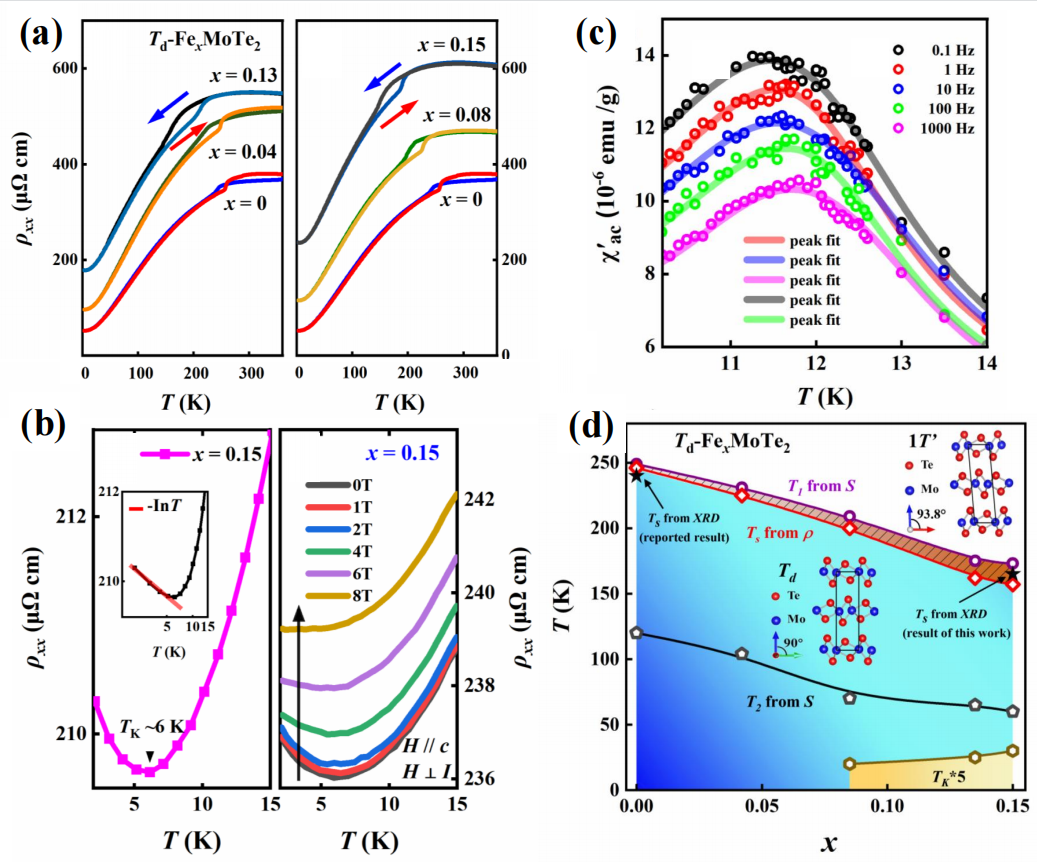
According to research published in Advanced Materials recently, a team led by Prof. LUO Xuan from Hefei Institutes of Physical Science (HFIPS), Chinese Academy of Sciences (CAS) made a breakthrough in tunning electronic properties of Weyl Semimetal Td-MoTe2 by intercalating 3d-element Fe atoms into the van der Waals (vdW) gap, which brought about exotic electronic behaviors as well as the first-time observed magnetic states in the topologically nontrivial Td phase.
The layered materials Weyl Semimetal Td-MoTe2 has attracted tremendous attention due to its abundant valuable properties including superconductivity, extreme large magnetoresistance, as well as topologically nontrivial band structure, making it an ideal hunting ground for exploring new physics and a promising candidate for fabricating new electronic devices. Different ways have been used to controllably manipulate the electronic properties of Td-MoTe2, such as pressure, chemical substitution, low-dimensionality by mechanical exfoliation, but the research on the intercalation of transition-metal elements in Weyl semimetal Td-MoTe2 is still absent.
In this research, by improving the single crystal growth process, the 3d-element Fe intercalated Td-FexMoTe2 samples were obtained. The team carried on systematic electrical, thermoelectric transport and ac susceptibility measurements, and studied the tunning effect of Fe intercalations in the system.
They found that the 1T' to Td phase transition temperature (TS) of MoTe2 was gradually decreased with the increase of Fe intercalation, which was confirmed by different characterization results. Theoretical calculation suggested that the increased energy of Td phase, enhanced transition barrier and more occupied bands in 1T’ phase were responsible for this phenomenon.
In addition, a ρ∝-ln T behavior induced by Kondo effect was observed with x ≥ 0.08, due to the coupling between conduction carriers and the local magnetic moments of intercalated Fe atoms. A spin-glass transition occurred at about 10K in Td-Fe0.15MoTe2. The electronic phase diagram of Td-FexMoTe2 was established for the first time.
This research enriched the physical properties of Weyl Semimetal Td-MoTe2 by 3d-element intercalation, and also provided an ideal platform for in-depth understanding the correlation between the ground states and the interlayer coupling in layered the transition metal dichalcogenides (TMDCs).
This research was supported by the National Key Research and Development Program, the Joint Key Project of the National Natural Science Foundation and Large Scientific Device, and the National Natural Science Foundation of China.

The electrical, magnetic properties, and electronic phase diagram of Td-FexMoTe2 (Image by LUO Xuan)
First Published on Jan.24